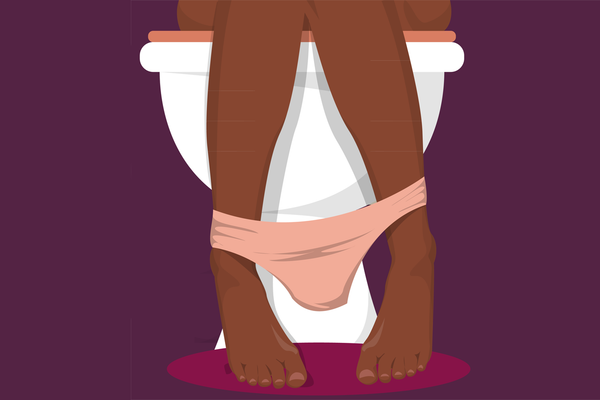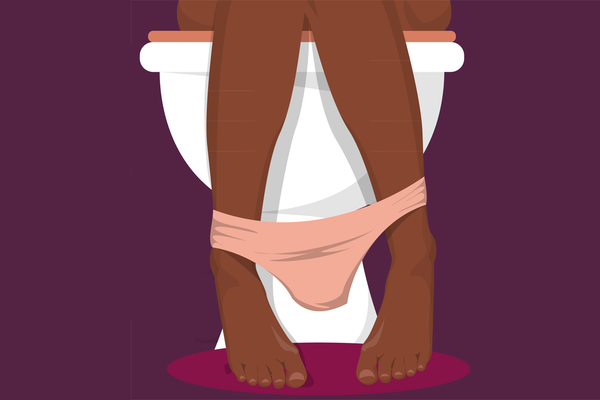If you’ve been experiencing unusual vaginal discharge or uncomfortable vaginal symptoms, you may have a common infection called bacterial vaginosis (BV). About 35% of women, usually between the ages of 15 and 44, have BV at some point in their life.
Some people have no symptoms, but if left untreated, BV increases your risk of getting a sexually transmitted infection (STI) and other complications. If you think you might have BV, contact your healthcare provider (HCP) as soon as you can.
What is bacterial vaginosis?
BV is an infection, but it’s not an STI.
Your vagina normally has many types of bacteria in it. The so-called “good” bacteria help keep your vagina healthy by keeping harmful bacteria in check. If the harmful bacteria outnumber the good ones, the overgrowth and imbalance can cause BV. Women who are not sexually active don’t usually get BV, but it’s possible.
What puts you at risk for bacterial vaginosis?
Any person with a vagina can get BV, but certain situations raise that risk:
- Being pregnant. Hormonal changes during this time can encourage bacterial overgrowth.
- Not using a condom during sex
- Having multiple sex partners or a new sex partner, especially if the partner is female
- Douching
- Using an intrauterine device (IUD) for birth control
- Being Black. Black women get BV at twice the rate of white women, although it’s unclear why.
Symptoms of bacterial vaginosis
Not everyone with BV has symptoms. The most common symptom is unusual vaginal discharge. Some women describe it as smelling like fish, especially after sex. The color of the discharge can range from off-white to greenish. Other symptoms include:
- Burning when urinating. This is similar to what you might feel if you have a urinary tract infection (UTI).
- Itching in and around the vagina
- Pain in and around the vagina
If you’re pregnant, vaginal discharge isn’t unusual. Discharge during pregnancy is typically thin and whitish, and has a mild odor. If you develop a thicker discharge that has a strong odor, contact your HCP.
Keep in mind that yeast infections can cause the same symptoms as BV. If you used over-the-counter yeast infection treatment to treat your symptoms, but they didn’t go away, you may have BV.
Read: Vaginal Discharge Provides Clues to Your Health and Fertility >>
How do you diagnose bacterial vaginosis?
To diagnose BV, your HCP will need to do a pelvic exam. They’ll examine your vagina and the area around it. If they think you might have BV, they’ll take a sample of the discharge to send to a lab for testing.
Although you can’t pass BV on to a male partner, you can pass it to a female partner. So, if you have a sexual relationship with a person with a vagina, it’s important to tell that person about your diagnosis.
What is the treatment for bacterial vaginosis?
The most common antibiotics used to treat BV are metronidazole and clindamycin. You can take antibiotics in pill form or apply a gel or cream directly into the vagina with an applicator.
It’s important to complete the entire prescription, even if your symptoms go away before the medication is finished. The bacteria may still be present and the symptoms will return if you stop the medication too soon. There’s also the risk that bacteria will become antibiotic-resistant. Even after completing a course of antibiotics, about 10–15% of people need more treatment. And up to 8 out of 10 people will have a repeat infection at some point in their life.
What complications can come from bacterial vaginosis?
Although BV is usually cured with treatment, there are complications to be aware of if the infection is not treated. These include:
- Pregnancy complications: Untreated BV can cause premature birth and low birth weight for the baby. The Centers for Disease Control and Prevention (CDC) recommend routinely testing pregnant women for BV, whether they have symptoms or not. They also suggest that if a baby is delivered early or with a low birth weight, that the mother be tested in case she has the infection but no symptoms.
- STIs: Although BV is not an STI itself, if left untreated, the condition increases your risk of getting an STI, like chlamydia, gonorrhea and pelvic inflammatory disease (PID). It is also easier for you to pass on an STI to a partner.
Read: 11 Things That Heaviness in Your Pelvic Area Might Mean >>
How do you prevent bacterial vaginosis?
Not all BV infections can be prevented, but there are steps you can take to reduce your risk.
- Don’t douche — the formula can throw off the balance of bacteria in your vagina.
- Avoid scented products (soaps, tampons, etc.) because they can cause inflammation.
- Use condoms when having sex.
This resource was created with support from Hologic.
- How Is Bacterial Vaginosis Treated? ›
- Bacterial Vaginosis: The Infection That Flies Under the Radar ›
- Difference Between Yeast Infection and Bacterial Vaginosis ›
- Untreated Bacterial Vaginosis: What If I Don’t Treat BV? ›
- Bacterial Vaginosis: What It Is and How to Treat It ›
- Bacterial Vaginosis Hub - HealthyWomen ›
- Bacterial Vaginosis: The Most Common Gynecologic Infection - HealthyWomen ›







